Abstract
In this investigation, we evaluated the effectiveness of a self-monitoring package with 3 learning disabled students whose responding to subtraction problems had been highly inconsistent and unsuccessful. Following a two-phase baseline of didactic instruction and special incentives, an error analysis was used to develop individualized self-monitoring checklists that the students then responded to as they completed their subtraction assignments. In the context of a multiple baseline design, the self-monitoring procedures produced immediate gains in correct responding, with more stable levels of successful performance occurring across sessions. In a subsequent maintenance phase, the checklists were removed and the previous incentives condition was reinstated, resulting in continued levels of successful responding. The results are compared to the literature on self-monitoring and learning disabilities and discussed in terms of the continuing need for effective and efficient instructional strategies.
Full text
PDF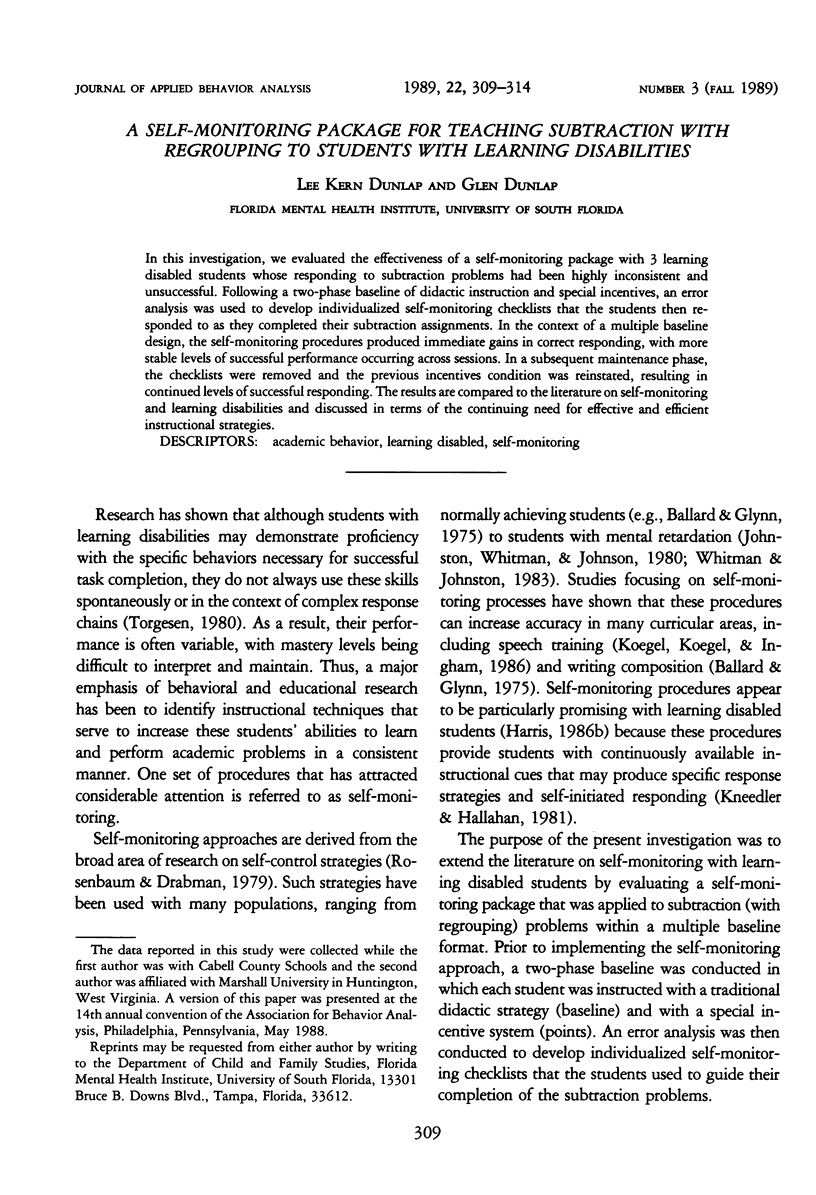
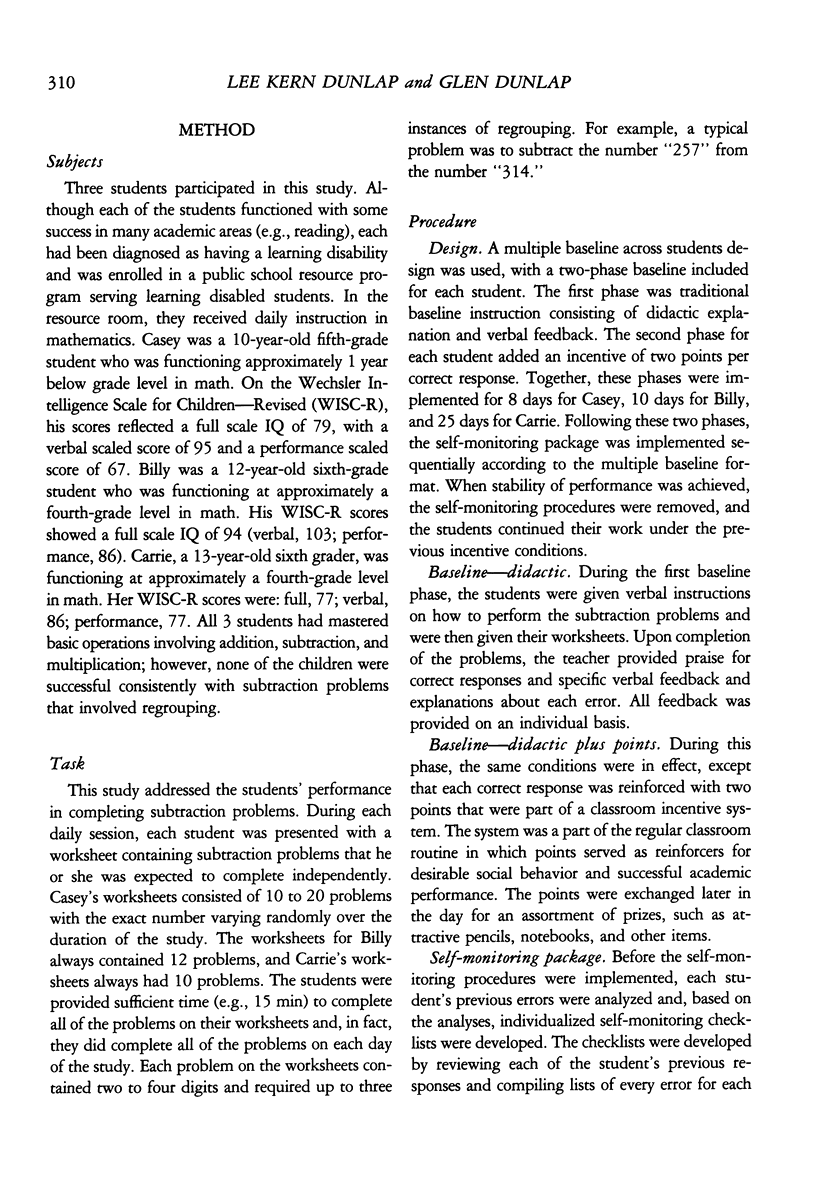
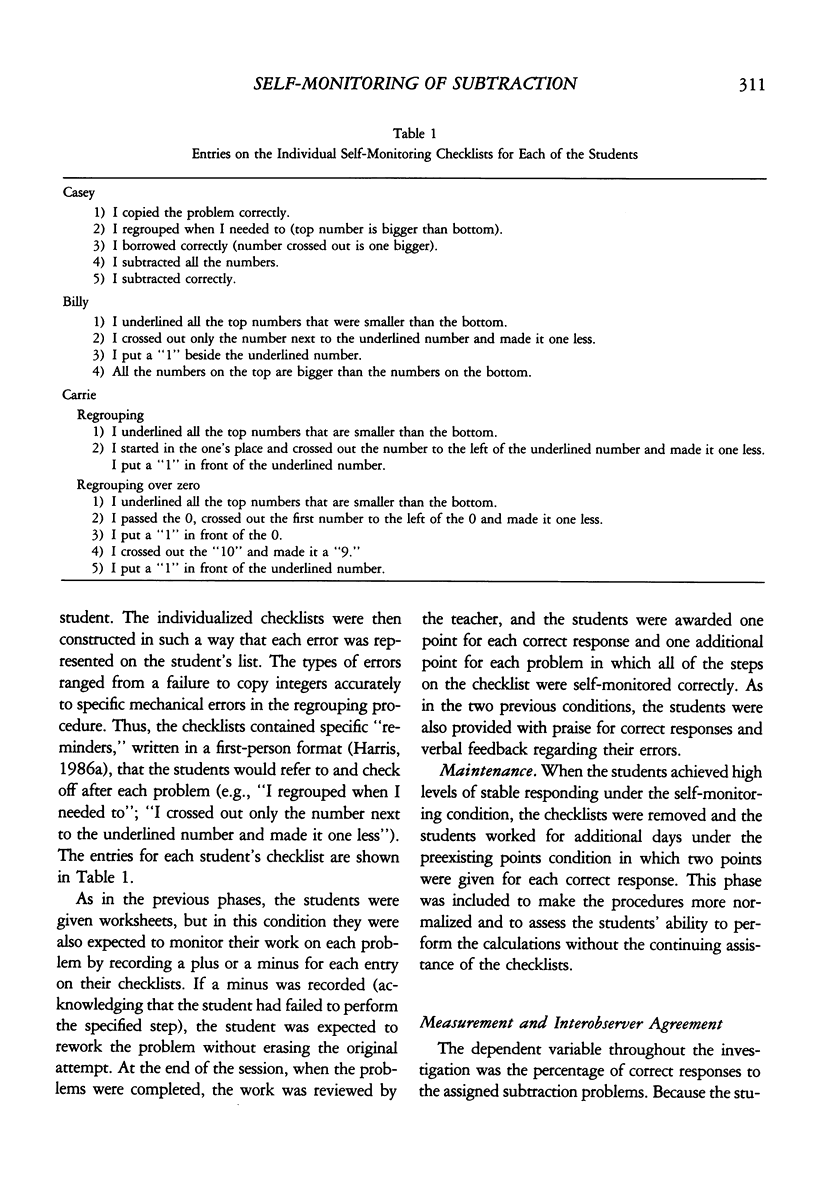
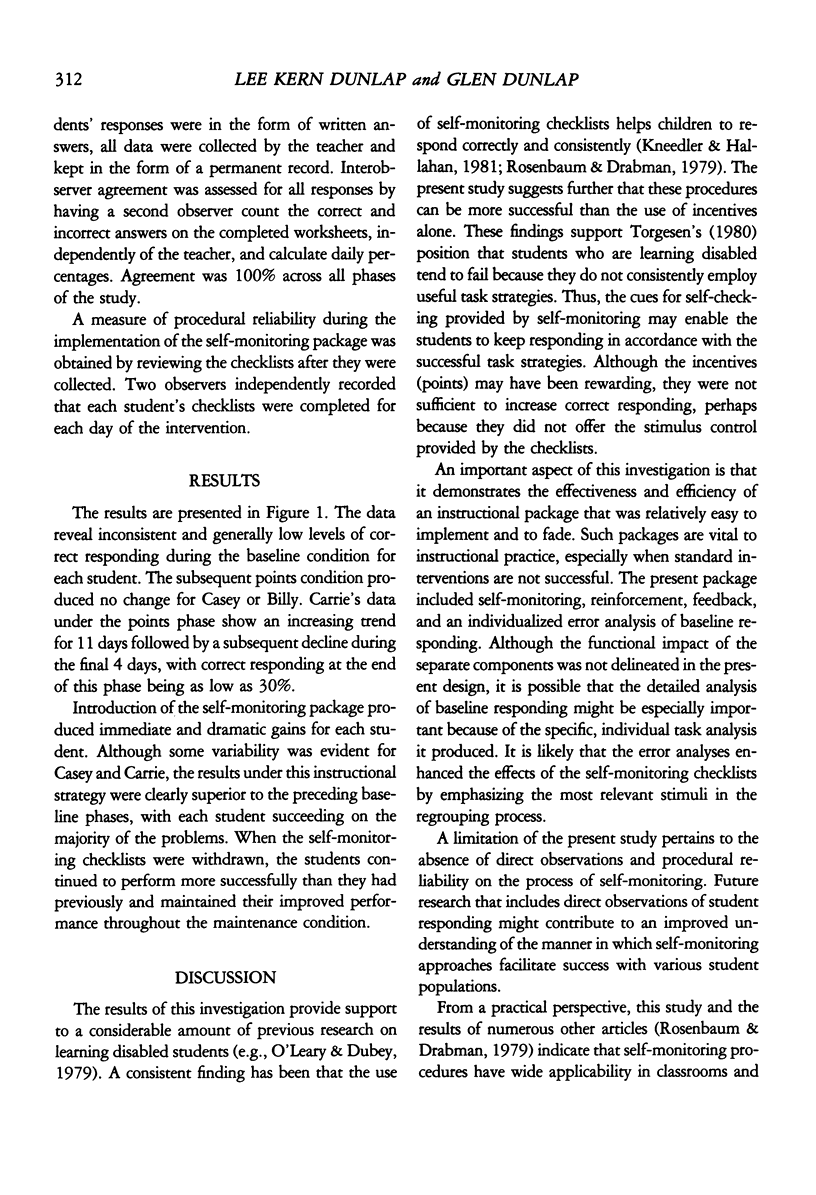
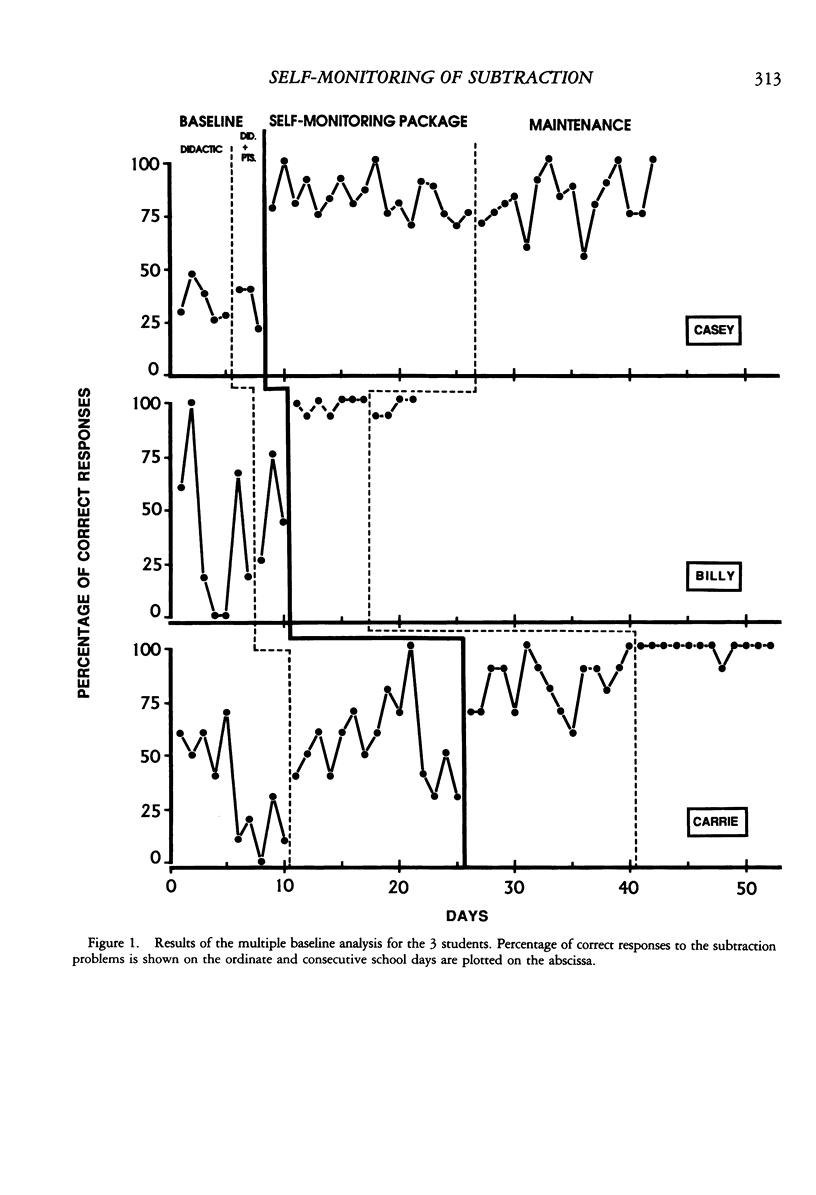
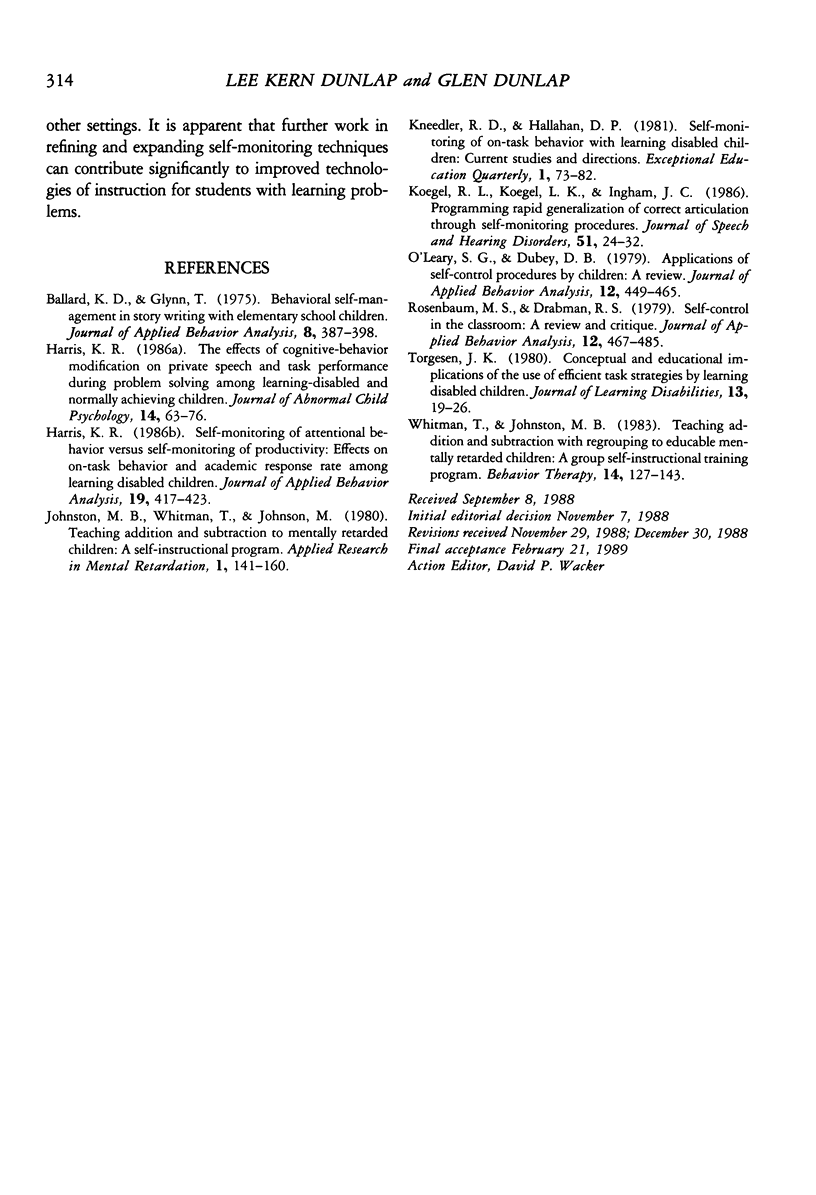
Selected References
These references are in PubMed. This may not be the complete list of references from this article.
- Ballard K. D., Glynn T. Behavioral self-management in story writing with elementary school children. J Appl Behav Anal. 1975 Winter;8(4):387–398. doi: 10.1901/jaba.1975.8-387. [DOI] [PMC free article] [PubMed] [Google Scholar]
- Harris K. R. Self-monitoring of attentional behavior versus self-monitoring of productivity: effects on on-task behavior and academic response rate among learning disabled children. J Appl Behav Anal. 1986 Winter;19(4):417–423. doi: 10.1901/jaba.1986.19-417. [DOI] [PMC free article] [PubMed] [Google Scholar]
- Harris K. R. The effects of cognitive-behavior modification on private speech and task performance during problem solving among learning-disabled and normally achieving children. J Abnorm Child Psychol. 1986 Mar;14(1):63–76. doi: 10.1007/BF00917222. [DOI] [PubMed] [Google Scholar]
- Johnston M. B., Whitman T. L., Johnson M. Teaching addition and subtraction to mentally retarded children: a self-instruction program. Appl Res Ment Retard. 1980;1(3-4):141–160. doi: 10.1016/0270-3092(80)90001-6. [DOI] [PubMed] [Google Scholar]
- Koegel L. K., Koegel R. L., Ingham J. C. Programming rapid generalization of correct articulation through self-monitoring procedures. J Speech Hear Disord. 1986 Feb;51(1):24–32. doi: 10.1044/jshd.5101.24. [DOI] [PubMed] [Google Scholar]
- O'Leary S. G., Dubey D. R. Applications of self-control procedures by children: a review. J Appl Behav Anal. 1979 Fall;12(3):449–465. doi: 10.1901/jaba.1979.12-449. [DOI] [PMC free article] [PubMed] [Google Scholar]
- Rosenbaum M. S., Drabman R. S. Self-control training in the classroom: a review and critique. J Appl Behav Anal. 1979 Fall;12(3):467–485. doi: 10.1901/jaba.1979.12-467. [DOI] [PMC free article] [PubMed] [Google Scholar]


